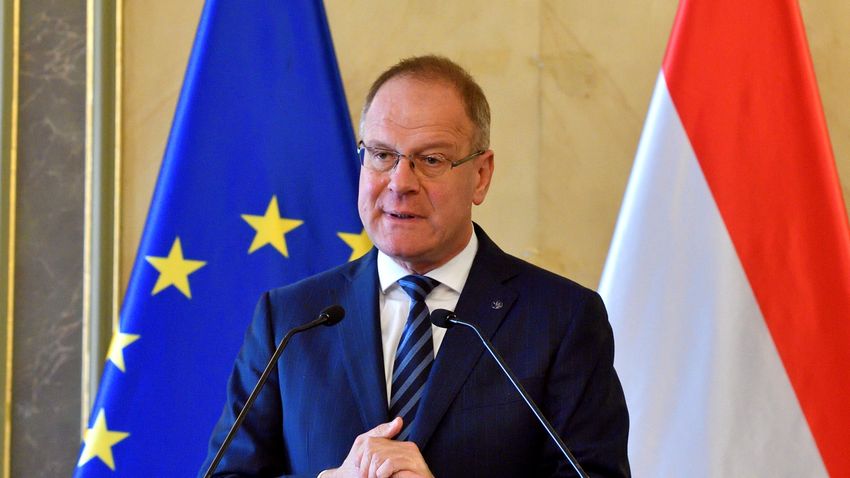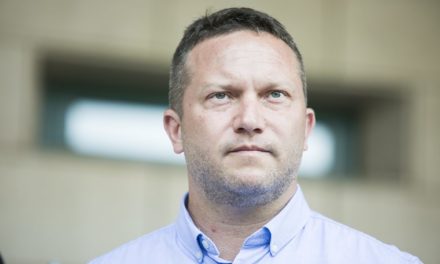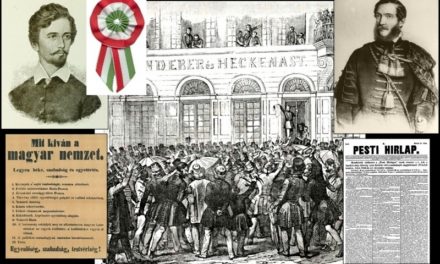We demand all European Union support - declared Regional Development Minister Tibor Navracsics. In an online podcast with Zoltán Kovács, the state secretary responsible for communications, it was said that the minister had previously held successful negotiations on a similar topic with EU representatives. He stated that he is well acquainted with both the Hungarian mentality and the way of thinking of Western leaders, and called the issue of building mutual trust as crucial.
He has already gained experience on how to come to an agreement with the European Union (EU), said Tibor Navracsics, minister without portfolio responsible for territorial development and the use of EU funds, in the English-language internet podcast of Zoltán Kovács, state secretary responsible for government communication. The minister said that
he already negotiated legislation on the reform of the judiciary and public administration on behalf of a previous Orbán government, but he was also a member of the European Committee responsible for education, culture, youth and sport, so he better understands both the attitude of the member states and the committee's perspectives.
Using his experience, we can obtain EU financial funds, which is currently proving to be a difficult task, even though it is not a gift, he emphasized.
He explained that the money comes from two sources, one of which is the cohesion fund, from which the regions finance its development. This applies to those areas that are below 75 percent of the EU average, he pointed out. In addition, there is RRF money, which is a completely new construction consisting of a grant and a loan part, of which the Hungarian government is applying for the grant part, but they are considering whether to apply for the credit or loan part as well.
The total amount is 20 billion euros, of which 14 billion euros is the value of the cohesion fund and 6 billion euros is the money coming in from the RRF, so the negotiations are taking place on two platforms at the same time
he declared. He added that the negotiation for the cohesion fund should be concluded with a partnership agreement, which provides a legal and institutional framework for obtaining EU funds, and the acquisition of the other financial source ends with the adoption of the national Recovery and Resilience Plan. which will hopefully be accepted by the Council this year. Zoltán Kovács confirmed that Tibor Navracsics had already done a successful job in the previous cycle in obtaining regional development funds coming to Transdanubia.
The Minister of Regional Development claimed that Hungary is one of the most reliable users of EU funds, because our country's performance is usually over 80 percent. which means that the funds have achieved their goal to that extent. He added that they try to maintain this efficiency even though it is attacked for political reasons or comes under fire from other authorities and institutions. That is why they want to make it more transparent, because that way it will be less politically attackable, he added.
Tibor Navracsics agreed with Zoltán Kovács' interpretation that we will not lose money, and then emphasized: Hungary is a good investment for the EU budget. because it can show good results in catching up with less developed regions and in social mobility.
The state secretary noted that we managed to halve the number of the poor, as well as those who are vulnerable due to various social challenges.
In response to the question why we got to the point with the negotiations, that we have to deal with a political issue, but the solution is only possible through legal means, the minister explained that the whole story started before 2010.
According to him, the problems were between 2006 and 2010 with the socialist-liberal coalition and the convergence report, as the data were falsified at that time.
The turning point was in 2010, when Fidesz and the Christian Democrats won a two-thirds majority, which was an unusual landslide-like victory in Western Europe, which is why the negotiators mention the political environment and not point-by-point problems or legislative, net procedural problems. The answer was often that a provision might be good, but the legal and political environment in Hungary does not allow the representatives of the union to trust us. This political mistrust can still be felt when a law is passed these days, Tibor Navracsics added.
Zoltán Kovács suggested that
there is a double standard and a witch hunt against our country, even though our only demand was that what works elsewhere in the EU should also be accepted in Hungary, regardless of the political environment.
At the end of the conversation, the war, skyrocketing inflation, the energy crisis and the not very promising prospects of the European economy were discussed. According to Tibor Navracsics, empathy is more important than theoretical knowledge, and we need to understand European logic, along with the fact that we have been socialized in a different historical environment and culture. He emphasized that recovery funds can be even more important during an international crisis than after it, and that the EU should not be divided politically, ideologically, or regionally. This is especially the case when a country is on the political front line, because we are basically very close to it, similar to other Central European countries.
Source and full article: Magyar Nemzet
Featured image: MTI/Péter Lakatos













